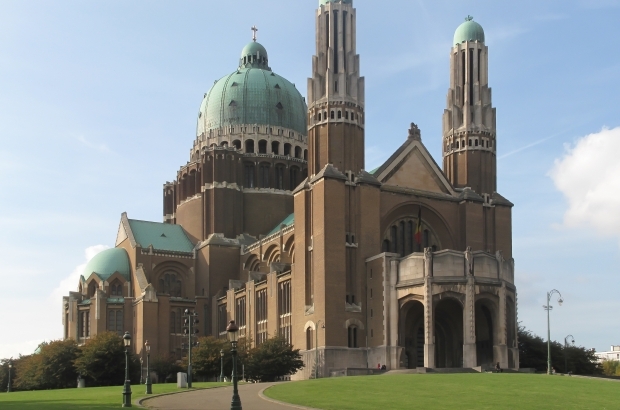- Daily & Weekly newsletters
- Buy & download The Bulletin
- Comment on our articles
Belgian Catholic Church releases report on sex abuse
The Belgian Catholic Church has unveiled its new annual report on sexual abuse within the church, to coincide with the United Nations World Day for Prevention and Healing of Sexual Exploitation, Abuse and Violence against Children.
A number of tributes to victims have also taken place, RTBF reports, namely in Koekelberg, Bruges and Tournai.
“No amount of money can ever cover the injustice done to the victims and their families,” the report reads.
“It is very difficult, if not impossible, to establish psychological damage and to demonstrate a causal link with events from the distant past.”
This year’s report registered and analysed 165 new complaints, which each victim entitled to financial compensation, the amounts of which are laid out in a table, "used in case law for facts that are not time-barred and that are based on non-material damage", according to the institution.
The table features four categories of complaints of increasing seriousness, from Category One ("indecent assault without violence or threat") offering financial compensation of up to €2,500, to Category Four ("facts which, due to their seriousness, long duration or the special circumstances of the sexual abuse, must be considered exceptional and which have led to extreme and manifest damage whose causal link with the sexual abuse is proven") with compensation of up to €25,000.
An estimated 28% of complaints (46 complaints) are considered to fall under Category One, and 17% (28 cases) fall under Category Four.
Category Two complaints (39% of the total, or 65 complaints) concern "indecent assault with violence and threat or presumption of threat or violence where the minor was under the age of 16 at the time of the offence or was in a vulnerable position" and victims may receive financial compensation of up to €5,000.
Category Three complaints (16% of the total, or 26 complaints) concern "rape, whatever the nature or means, perpetrated on a minor without their consent or with a presumption of non-consent if the minor was under the age of 16 at the time of the first acts or presented a certain vulnerability". Financial compensation of up to €10,000 is offered.
The table has been sharply criticised, namely for the amounts of financial compensation offered. The Church claims the amounts "were determined by legal experts and approved by the parliamentary committee at the time" in 2017.
Where the statute of limitations has expired, Belgian law states that financial compensation is not compulsory. However, the Church has decided to pay this compensation anyway.
Other documents provided by the Belgian Catholic Church show that in 2023, 14,251 people asked to be removed from baptism registers, compared with around 1,200 in previous years.
The move was a reaction to the sex abuse scandal in the Church, but "purely symbolic" according to Church authorities.
“We know that a lot of people aren't happy, and I understand that,” said Father Tommy Scholtes, spokesperson for the Belgian Bishops’ Conference.
“I understand the anger of a certain number of people. That's why there are reactions, which are manifested through deregistration. But these reactions are not related to what is happening now, they are related to an earlier time. Today, we have the support of many of the people we meet among the victims.”
The Belgian Catholic Church’s self-investigation began after the Dutroux affair, when documents relating to the paedophile murderer Marc Dutroux were recovered during a raid on the Archbishop's Palace and Mechelen Cathedral back in 2010.
The raid was part of a bigger police investigation into what role the Roman Catholic Church in Belgium had in covering up paedophilia and sex abuse.
“There is a desire for change within the Church, and we are very clear about this,” said Scholtes.
“There have been faults on the part of the Church, which must be corrected, with a new way of doing things. There has been a fundamental questioning of what has been done for years in this area, which is in the process of being transformed.”
Part of that "transformation" includes the creation of the Dignity Foundation, a body set up by the bishops and religious superiors to support victims of sexual abuse.
“It wasn't easy because we had a great need for knowledge,” said Dignity Foundation’s chairman Emmanuel Keirse. “We needed to know what had been done. Now we can.”
Changes include the creation of contact points for victims of sexual abuse within the Church. Initially numbering 10 in 2012, these were gradually reduced to just two by 2021: one Dutch-speaking and one French-speaking.
“We were receiving fewer and fewer new cases each year, so we decided to reduce the number of contact points and instead offer meeting places for victims in each diocese,” Keirse said.
Father Scholtes said a national commissioner with "a degree of independence" was also appointed, “so that things are managed by people who are not directly and solely involved in the Church”.
“It's about showing that the Church is continuing to reform and is constantly trying to improve this support,” he added.















